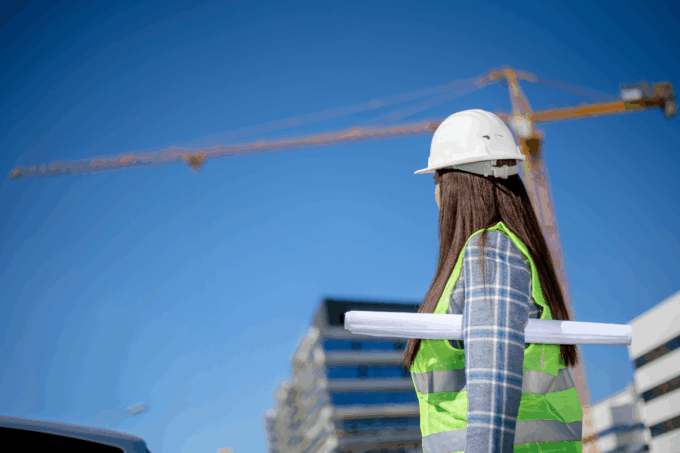- Home
- Articles
- Architectural Portfolio
- Architectral Presentation
- Inspirational Stories
- Architecture News
- Visualization
- BIM Industry
- Facade Design
- Parametric Design
- Career
- Landscape Architecture
- Construction
- Artificial Intelligence
- Sketching
- Design Softwares
- Diagrams
- Writing
- Architectural Tips
- Sustainability
- Courses
- Concept
- Technology
- History & Heritage
- Future of Architecture
- Guides & How-To
- Art & Culture
- Projects
- Interior Design
- Competitions
- Jobs
- Store
- Tools
- More
- Home
- Articles
- Architectural Portfolio
- Architectral Presentation
- Inspirational Stories
- Architecture News
- Visualization
- BIM Industry
- Facade Design
- Parametric Design
- Career
- Landscape Architecture
- Construction
- Artificial Intelligence
- Sketching
- Design Softwares
- Diagrams
- Writing
- Architectural Tips
- Sustainability
- Courses
- Concept
- Technology
- History & Heritage
- Future of Architecture
- Guides & How-To
- Art & Culture
- Projects
- Interior Design
- Competitions
- Jobs
- Store
- Tools
- More
Foundation Repair Allentown: Expert Solutions for Stable Homes

Table of Contents Show
Many homeowners face issues like cracks, uneven floors, and water damage: foundation maintenance and repair is absolutely crucial to maintaining the value of your home but also the safety of your family. Seeking professional help promptly can prevent more severe structural problems.
For those looking to address foundation issues, it’s important to choose experienced professionals, there are many trusted companies in Allentown, Pennsylvania offering specialized services like basement waterproofing, crack repair, and mud jacking. Homeowners can explore options like Basement by Burke for reliable service and personalized care.
Working with qualified, local experts makes sure that the integrity of the home is preserved, offering peace of mind and long-term protection.
Common Causes of Foundation Damage
Many issues can cause foundation damage, including soil movement and water-related problems. Each of these factors can lead to significant structural issues if not properly addressed.
Soil Shifting and Erosion
Soil movement occurs when the ground beneath a home shifts. This can happen due to natural processes or human activities. In Allentown, PA, the soil tends to expand and contract with changes in moisture levels. During dry periods, the soil contracts, and during wet periods, it expands. This movement puts stress on the foundation, causing cracks and other damage.
Erosion is another critical factor. When water washes away soil around the foundation, it creates voids. These voids lead to uneven settling, causing parts of the foundation to sink while others remain in place. This uneven settling can result in structural damage over time.
Water Damage and Poor Drainage
Water damage is a frequent cause of foundation issues, especially in areas with heavy rainfall and poor drainage systems. When water accumulates around a home’s foundation, it can seep into the concrete, causing it to weaken and crack. Water pressure from the outside can also push against the foundation walls, leading to bowing or bulging.
Poor drainage is often to blame. If gutters and downspouts aren’t functioning correctly, water can pool near the foundation. This water eventually seeps into the soil, causing it to expand. When the soil dries, it contracts, creating gaps that can lead to settling and cracks in the foundation. Homeowners need to ensure proper drainage to prevent these issues.

Signs Your Foundation Needs Repair
Identifying the signs of foundation problems early can save time and money. Key indicators include visible cracks and issues with doors and windows.
Cracks in Walls and Floors
Cracks in walls and floors are common signs of foundation issues. These cracks can appear in various places like brick walls, drywall, and on the floor itself. Horizontal cracks usually indicate more severe problems compared to vertical ones, which might just be from normal settling.
- Diagonal cracks can signify differential settling.
- Stair-step cracks in brickwork are also a warning.
Homeowners should not ignore crumbling or flaking. Also, if gaps appear where walls meet the floor or ceiling, it could mean the foundation is shifting. Sometimes, you’ll notice that tile or hardwood flooring becomes uneven.
Doors and Windows Not Closing Properly
When a foundation shifts, doors and windows often do not fit their frames correctly. Check if doors stick when you try to open or close them. Windows might also become difficult to operate. If you notice gaps around frames or the doors won’t latch properly, it’s worth paying attention.
Observe if door frames start to separate from the walls. Sometimes, you might even see cracks extending from the corners of door and window frames. This indicates the foundation may be uneven or sinking. Proper alignment is crucial for these structures, and any shifts should be inspected right away.
Foundation Repair Techniques
Foundation repair in Allentown, Pennsylvania, requires specific methods tailored to the local climate and soil conditions. This section looks at two crucial techniques: piers and underpinning, and slabjacking and soil stabilization.
Piers and Underpinning
Piers and underpinning methods are often used for significant foundation issues. Steel piers are driven deep into the ground until they reach load-bearing soil or bedrock. These piers provide strong support for the foundation. Another option, helical piers, has spiral blades that help screw them into the ground. They are often used for lighter loads or areas with softer soil.
Underpinning involves extending the foundation to different depths to support the structure properly. This can be done by reinforcing the existing foundation or adding new supports. The main aim is to stabilize and strengthen the foundation to prevent further damage and ensure the building remains safe.
This method is crucial for homes in Allentown, where soil conditions can lead to settling issues. Proper usage of piers and underpinnings can save homeowners from future costly repairs.
Slabjacking and Soil Stabilization
Slabjacking is a technique used to lift sunken concrete slabs back to their original level. In this process, a special grout mixture is pumped under the slab. This grout fills voids and lifts the concrete. It’s a cost-effective and quick method for minor foundation issues.
Soil stabilization is used to address problems with the ground beneath the foundation. This can involve injecting stabilizing materials like polyurethane into the soil to improve its load-bearing capacity. This prevents further shifting and settling of the foundation.
Both methods are especially useful in Allentown’s residential areas, where soil shifts can cause foundation issues.

Why Timely Foundation Repair is Essential
Timely foundation repair can prevent serious problems and maintain the value of a home. Addressing issues early helps avoid costly repairs and ensures the safety of the structure.
Preventing Further Structural Damage
A small problem with a foundation can quickly turn into a big issue. Cracks and shifts in the foundation can lead to walls bowing and floors becoming uneven. These issues might affect plumbing, electrical systems, and more.
Timely repairs can stop this damage before it spreads. Fixing cracks and other problems early means they won’t worsen with time. Structural integrity is key; thus, early intervention preserves it.
Also, fixing foundation issues helps avoid greater costs down the line. Letting problems sit means they can get worse, leading to more expensive and extensive repairs. Quick action saves both time and money in the long run.
Protecting Your Home’s Value
A strong foundation is crucial to a home’s value. Homes with foundation issues can see a decrease in their market price. Prospective buyers look for solid, safe homes. If the foundation is damaged, they may hesitate to buy or offer less money.
Timely repairs reassure buyers that the home is well-maintained. Furthermore, it can also enhance the aesthetic appeal, which is crucial for selling.
Addressing foundation problems promptly can help homeowners maintain or even increase their property value.
Maintaining a stable foundation helps in avoiding disruptions during sales. Inspection reports showing a sound foundation make the selling process smoother. Thus, timely repairs are vital for maintaining and protecting the home’s market value.
Frequently Asked Questions
Foundation repair is critical to maintaining your home’s safety and value. Understanding the process can help you make informed decisions.
Can a bad foundation be fixed?
Yes, a bad foundation can often be repaired. The process and difficulty depend on the extent of the damage. Common solutions include underpinning, slab jacking, and steel piers. Each method addresses specific types of foundation problems.
How much does it cost to adjust a foundation?
The average cost to adjust a foundation in Allentown is around $3,793. Factors influencing the cost include the size of the home, the severity of the damage, and the repair method used. Contacting local contractors will provide a more accurate estimate.
What type of foundation repair is most expensive?
The most expensive type of foundation repair generally involves extensive underpinning. This method stabilizes very damaged foundations and can require heavy machinery and substantial labor. Costs can also rise significantly if other major structural repairs are needed.
What are the signs that indicate a need for foundation repair?
Common signs include cracks in walls or floors, sticking doors and windows, or uneven floors. You may also notice gaps around doors or windows and water pooling around the base of your home. Address these issues promptly to prevent further damage.
What different methods are used for foundation repair?
Several methods are used in foundation repair, including slab jacking, which lifts sunken concrete, and using piers to support and stabilize the foundation. Other techniques involve sealing and waterproofing the foundation to prevent moisture issues that cause damage.
How long does a typical foundation repair take to complete?
The time required for foundation repair varies. Small repairs might take a few days, while larger projects can take weeks. The duration depends on factors like the extent of damage and the repair method employed. Always consult with a professional to get accurate timelines.
illustrarch is your daily dose of architecture. Leading community designed for all lovers of illustration and drawing.
Submit your architectural projects
Follow these steps for submission your project. Submission FormLatest Posts
Woolworth Building: The Cathedral of Commerce and Its Lasting Legacy in New York City
A look inside the Woolworth Building in New York City, from its...
Making Every Inch Count: Smart Solutions for Warehouse Storage
Table of Contents Show Think Vertical, Not Just HorizontalGetting Smart About Storage...
DIY Shed Building: 5 Costly Mistakes That’ll Make You Want to Cry (And How to Skip Them)
Table of Contents Show Mistake 1: Skipping the Foundation Prep (Because Who...
10 Frank Gehry Buildings You Need to See Before You Die
A curated guide to ten of the most significant Frank Gehry buildings...












Leave a comment